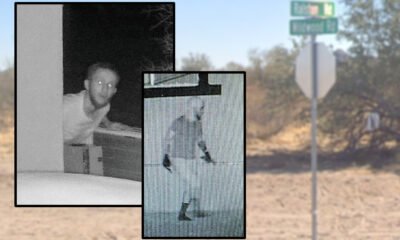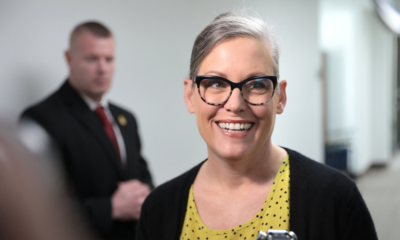arizona
Death Penalty Opponents Urge Hobbs to Unleash Hidden Report She Suppressed

Several advocacy groups called upon Governor Katie Hobbs on Wednesday to finalize and disclose the investigation into Arizona’s death penalty practices. This demand follows a series of troubling executions that raised ethical concerns and operational issues within the state’s execution protocols.
In January 2023, prompted by botched lethal injections, Hobbs issued an executive order establishing a Death Penalty Independent Review Commissioner. This initiative tasked a retired federal judge with assessing how the Arizona Department of Corrections, Rehabilitation & Reentry (ADCRR) manages executions, with a report to be submitted on the findings.
Lethal injections, historically fraught with complications, have faced significant scrutiny. Notably, in 2014, Joseph Wood endured a prolonged execution over two hours, while Clarence Dixon’s execution in 2022 took 40 minutes and involved distressing procedures that left him bleeding.
Retired Magistrate Judge David Duncan was appointed to lead the investigation, which commenced in September 2023. His draft report outlined the troubling history of lethal injections in Arizona, dating back to 1992, and identified ongoing challenges related to securing the necessary drugs for executions.
Duncan noted a pervasive lack of transparency surrounding execution processes, likening it to a “cement silo” that obscures critical aspects of execution protocols. He emphasized that this environment fosters errors and flawed practices.
During his investigation, Duncan interviewed approximately 40 to 50 individuals connected to the execution process and reviewed extensive ADCRR records. His findings included handwritten notes referencing Wikipedia searches about lethal injection drugs and financial details indicating an execution staff member was compensated $60,000 for three executions in 2022.
Seeking deeper insights, Duncan requested to meet with executioners and observe execution protocols through dry runs; however, ADCRR denied these requests. His draft indicated that alternative methods, such as the firing squad, while currently illegal in Arizona, could offer more humane execution options.
In late November, Hobbs unexpectedly dismissed Duncan, effectively terminating the independent investigation and commissioning ADCRR Director Ryan Thornell to conduct an internal review instead. In her communication to Duncan, Hobbs expressed a lack of confidence in receiving a report that aligned with her initial executive objectives.
Despite providing media outlets with some pages of Duncan’s draft and ADCRR’s rebuttal, the Hobbs administration has not made these documents accessible to the public. This lack of transparency has sparked concern among advocacy groups.
Jared Keenan of the ACLU of Arizona highlighted the inconsistency in Hobbs’ commitment to ensuring humane executions, urging the governor to prioritize public access to a comprehensive review. Duncan’s draft argued that lethal injection is fundamentally flawed, presenting an unfinished template that was expected to be completed soon.
With Duncan’s investigation halted and internal reviews now in place, the administration stands ready to resume executions for individuals on Death Row. Aaron Gunches, convicted in 2002 for the murder of Ted Price, appears poised to be the first facing execution under the renewed framework.
Gunches’s case is marked by prior legal complexities, including a self-representation request to expedite his execution, which he later withdrew. Currently, Attorney General Kris Mayes is pushing for a new execution warrant for Gunches amid heightened scrutiny of the processes involved.
Advocates continue to demand transparency and accountability from the state regarding execution protocols. As Katie Gipson-McLean, a defense attorney, remarked, “We insist on proof,” urging officials to move beyond mere assurances of trust.


















